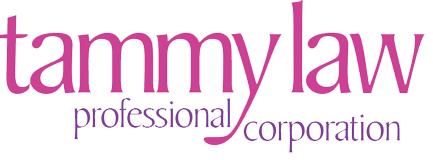Coronavirus and Family Law: What You Need to Know
Across Ontario, COVID-19 has left a major impact on individuals and their families. If you are in the midst of a separation or divorce, if you are co-parenting your children, or if you are working with a Children’s Aid Society, that means you are facing major changes in the way you live your life and engage with the people who are most important to you. Here are some important things you need to know if you are in the midst of a family law dispute during the COVID-19 pandemic:
If You Are in Family Court
The Family Courts remain open for urgent matters only. What is urgent depends on the circumstances of the case. It includes child protection apprehensions where a child is removed from a parent’s care and temporary care and custody hearings, as well as restraining orders, secure treatment orders, urgent custody and access motions, and child abduction cases.
The urgency of a matter will be decided on a case to case basis. If you are a self-represented litigant, it is important to review the court directives carefully for the Ontario Superior Court and the Ontario Court of Justice to determine if your matter is urgent. You can find the Superior Court of Justice’s directive here and the Ontario Court of Justice’s directive here.
Remember that an in-person attendance impacts not only you, but court staff, judges, clerks, and everyone who continue to put their health and safety on the line in order to ensure access to justice during the outbreak. If you have questions or concerns regarding an urgent matter before the Court, consult with a family lawyer to discuss your rights and the safest manner to proceed with your case during this difficult time.
If your case is not urgent, alternative dispute resolution, including arbitration and mediation, are available remotely including by phone and online. Alternative dispute resolution can be a time efficient and cost-effective way to resolve disputes outside of Court and can help parents develop creative, flexible options in view of the COVID-19 pandemic.
If You Are Co-Parenting
If you currently have a court order, separation agreement, or parenting plan, your order or agreement remains in force despite the COVID-19 pandemic. For some parents, COVID-19 will mean making adjustments to the parenting schedule to meet your family’s needs. If possible, talk to your co-parent about any necessary modifications to your parenting schedule. Communicate about how you plan to implement public health recommendations in your home, including self-isolation. Where necessary, be flexible in arranging make-up visits for missed access caused by mandatory quarantines or self-isolation.
Remember that mediators, divorce coaches, counsellors, parenting coordinators, and lawyers remain available remotely to assist you if communication breaks down and you are unable to reach an agreement on an important issue impacting your family.
If you have coronavirus or are in self-quarantine, this may of necessity impact your custody and access schedule. While your court order remains in effect, the Courts will likely be reticent to send a child home if a parent is ill with coronavirus. While the risk is ongoing, it is important to have open discussions and work towards creative solutions, including increased telephone, skype, and face time access to ensure the family’s safety without compromising key relationships between children and their parents.
For additional guidelines for co-parents, you can review the American Association of Matrimonial Lawyers and the Association of Family and Conciliation Courts’ joint statement here.
If You Have Lost Access to Your Children
If you are in self-quarantine, have a presumptive case of coronavirus, or have tested positive for coronavirus, your in-person access has likely been suspended. However, COVID-19 does not create a carte blanche to cancel access. It is important to balance parents’ and children’s rights to an ongoing relationship with any safety risks of contact. Get creative, engage in ongoing discussions, and consult with a legal advisor about your rights if necessary.
If you are a parent and have supervised access to your child through a supervised access centre, your access may have been cancelled by the access supervisor. If you are in a domestic dispute, you may be able to enter into a consent agreement with your coparent to make alternative arrangements for access, such as access in a family member or friend’s home. In making new access arrangements, it is important to consider how to implement social distancing and public health recommendations.
If you are in Court with the Children’s Aid Society or have a Voluntary Services Agreement with Children’s Aid, you may have experienced a complete shut down of any in person access, including access supervised by family members. If you are in child protection litigation or working with the Children’s Aid Society and you have been denied access without a valid public health concern, it is important to contact a lawyer to discuss your legal rights.
If You Do Not Feel Safe While Self-Isolating at Home
Whether you are navigating a separation in Court, outside of Court, or are currently in an abusive relationship, self-isolation and quarantine at home may create a dangerous situation for survivors of domestic violence.
If you do not feel safe at home, it is important to get help. Your safety and the safety of your children are of the utmost priority. If you or your loved one needs counselling or community support, the assaulted women’s hotline remains open 24/7 at 1-866-863-0511. If you need legal support, it is important to reach out to a lawyer, and if appropriate, contact Legal Aid Ontario at: 1‑800‑668‑8258.


Comments are closed.